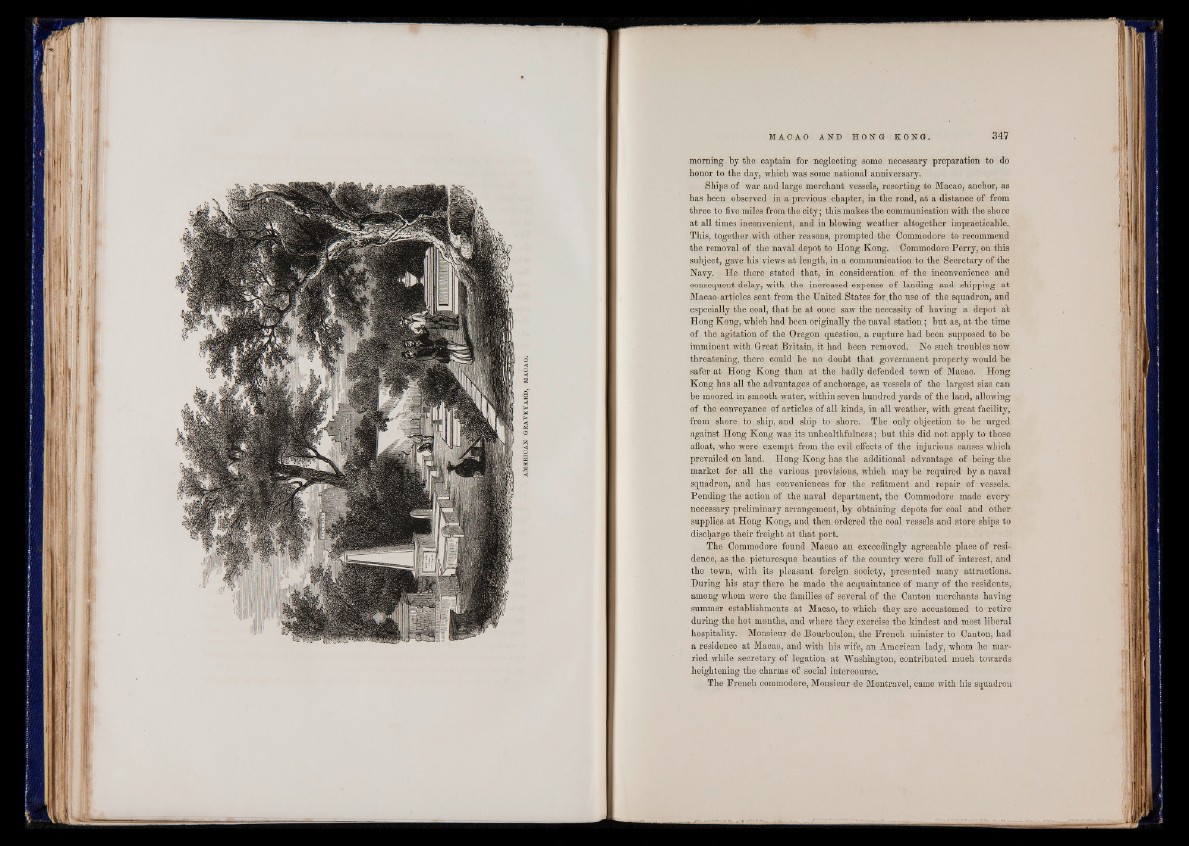
AMERICAN GRAVEYARD, MACAO.
morning by the captain for neglecting some necessary preparation to do
honor to the day, which was some national anniversary.
Ships of war and large merchant vessels, resorting to Macao, anchor, as
has been observed in a previous chapter, in the road, at a distance of from
three to five miles from the city; this makes the communication with the shore
at all times inconvenient, and in blowing weather altogether impracticable.
This, together with other reasons, prompted the Commodore to recommend
the removal of the naval depot to Hong Kong. Commodore Perry, on this
subject, gave his views at length, in a communication to the Secretary of the
Navy. He there stated that, in consideration of the inconvenience and
consequent delay, with the increased expense of landing and shipping at
Macao articles sent from the United States for the use of thè squadron, and
especially the coal, that he at once saw the necessity of having a depot at
Hong Kong, which had been originally the naval station ; but as, at the time
of the agitation of the Oregon question, a rupture had been supposed to be
imminent with Great Britain, it had been removed. No such troubles now
threatening, there could be no doubt that government property would be
safer at HoDg Kong than at the badly defended town of Macao. Hong
Kong has all the advantages of anchorage, as vessels of the largest size can
be moored in smooth water, within seven hundred yards of the land, allowing
of the conveyance of articles of all kinds, in all weather, with great facility,
from shore to ship, and ship to shore. The only objection to be urged
against Hong Kong was its unhealthfulness ; but this did not apply to those
afloat, who were exempt from the evil effects of the injurious causes which
prevailed on land. Hong Kong has the additional advantage of being the
market for all the various provisions, which may be required by a naval
squadron, and has conveniences for the refitment and repair of vessels.
Pending the action of the naval department, the Commodore made every
necessary preliminary arrangement, by obtaining depots for coal and other
supplies at Hong Kong, and then ordered the coal vessels and store ships to
discharge their freight at that port.
The Commodore found Macao an exceedingly agreeable place of residence,
as the picturesque beauties of the country were full of interest, and
the town, with its pleasant foreign society, presented many attractions.
During his stay there he made the acquaintance of many of the residents,
among whom were the families of several of the Canton merchants having
summer establishments at Macao, to which they are accustomed to retire
during the hot months, and where they exercise the kindest and most liberal
hospitality. Monsieur de Bourboulon, the French minister to Canton, had
a residence at Macao, and with his wife, an American lady, whom he married
while secretary of legation at Washington, contributed much towards
heightening the charms of social intercourse.
The French commodore, Monsieur de Montravel, came with his squadron